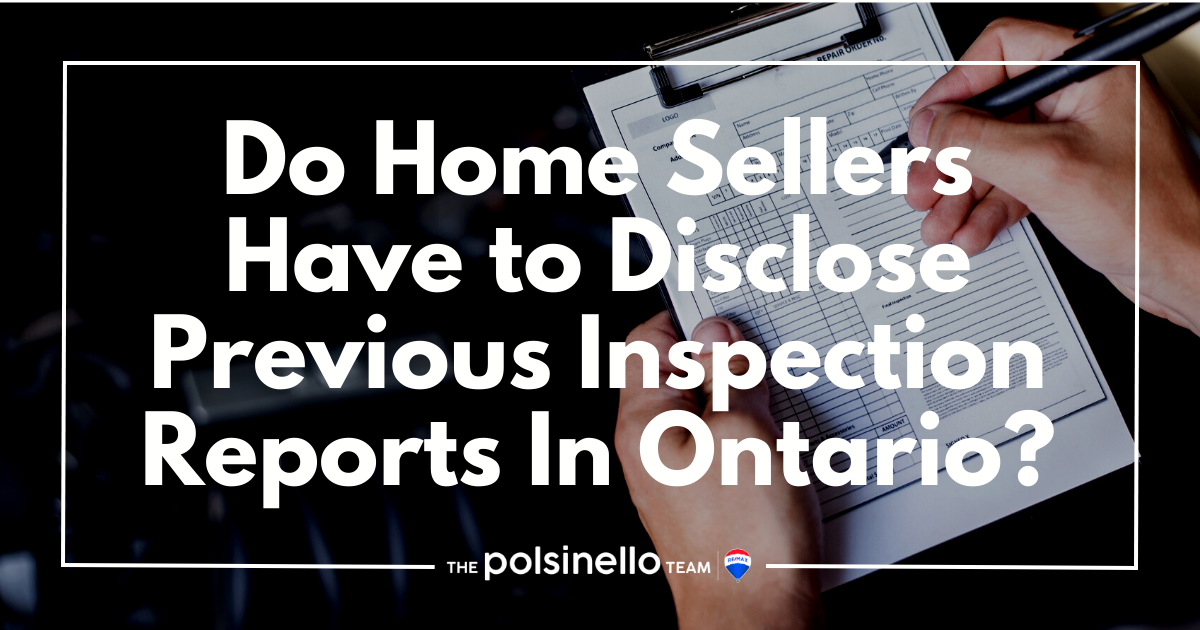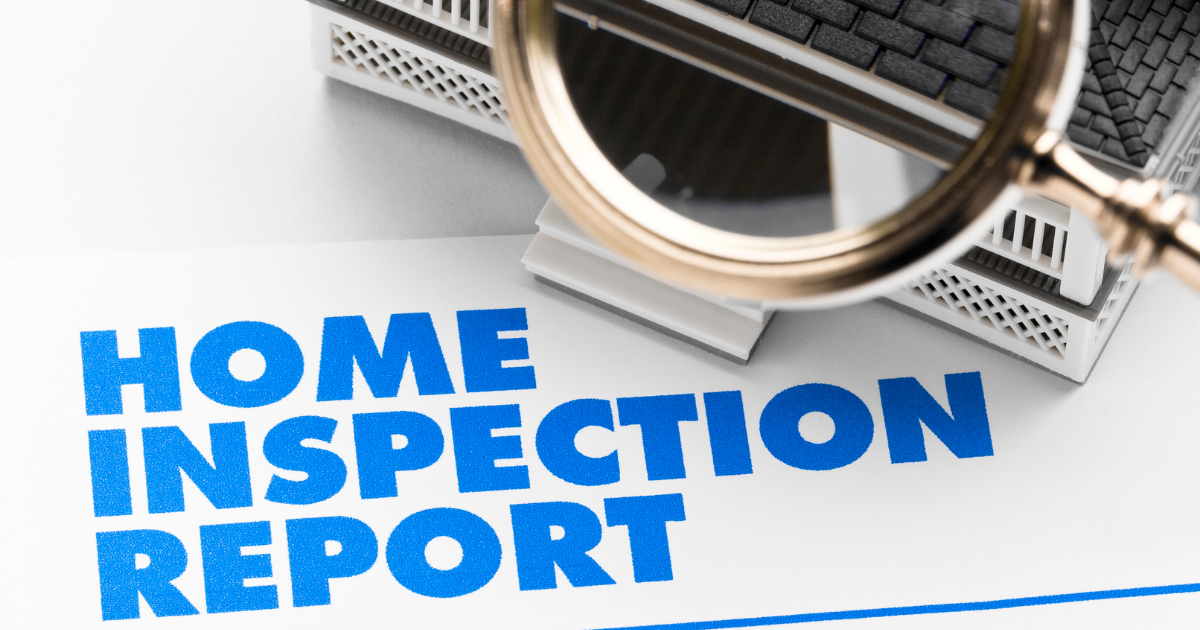
If you're in the process of selling your home in Ontario, you may be wondering whether you're required to disclose any previous inspection reports to potential buyers. After all, if you've already had an inspection done, it may seem like a waste of money to have another one conducted. But what are the legal requirements in Ontario when it comes to disclosing previous inspection reports? In this article, we'll take a closer look at the rules and regulations around this issue.
Understanding Home Inspections in Ontario
Before we dive into the question of whether or not home sellers are required to disclose previous inspection reports, it's important to have a basic understanding of home inspections in Ontario. Home inspections are typically conducted by professional home inspectors, who will examine various aspects of the home, including the structure, foundation, electrical systems, plumbing, and more. The purpose of a home inspection is to identify any issues or potential problems with the home that may need to be addressed before the sale is finalized.
The Importance of Disclosure in Real Estate Transactions
When it comes to real estate transactions in Ontario, the principle of "caveat emptor" applies. This means that it's the buyer's responsibility to do their due diligence and ensure that they're making an informed decision when purchasing a property. However, this doesn't mean that sellers are off the hook when it comes to disclosure. In fact, there are certain things that sellers are legally required to disclose to potential buyers.
Disclosure Requirements for Home Sellers in Ontario
Under Ontario law, home sellers are required to disclose any material latent defects that they're aware of. A latent defect is a defect that isn't visible or apparent upon a reasonable inspection of the property. In other words, it's a defect that you wouldn't be able to identify just by looking at the property.
While there's no specific requirement for home sellers to provide potential buyers with a previous inspection report, it's generally considered to be good practice to do so. Providing a previous inspection report can give buyers valuable information about the condition of the property and may help to speed up the sales process.
The Risks of Not Disclosing Previous Inspection Reports
If you choose not to disclose a previous inspection report to potential buyers, you may be opening yourself up to legal liability. If the buyer later discovers an issue with the property that was identified in the previous inspection report, they may be able to take legal action against you for failing to disclose the information.
How to Handle Previous Inspection Reports as a Home Seller
If you've had a previous inspection done on your home and you're unsure of whether or not to disclose the report to potential buyers, it's best to err on the side of caution and provide the report. This can help to build trust with potential buyers and may help to expedite the sales process.
If you're concerned about the cost of providing a previous inspection report, you may be able to negotiate with the buyer to split the cost of a new inspection report. This can help to ensure that both parties have access to the most up-to-date information about the condition of the property.
FAQs
-
What is a latent defect? A latent defect is a defect that isn't visible or apparent upon a reasonable inspection of the property.
- Am I legally required to disclose previous inspection reports to potential buyers in Ontario?
There's no specific legal requirement for home sellers in Ontario to disclose previous inspection reports to potential buyers. However, if you're aware of any material latent defects, you're required to disclose them to potential buyers.
- Can I negotiate the cost of a new inspection report with potential buyers?
Yes, it's possible to negotiate the cost of a new inspection report with potential buyers. This can help to ensure that both parties have access to the most up-to-date information about the condition of the property.
- What happens if I don't disclose a previous inspection report?
If you choose not to disclose a previous inspection report and the buyer later discovers an issue with the property that was identified in the report, you may be held liable for failing to disclose the information.
- Can a previous inspection report be used in place of a new inspection?
While a previous inspection report can provide valuable information about the condition of the property, it's generally recommended to have a new inspection conducted to ensure that both parties have access to the most up-to-date information.
- What if the previous inspection report contains inaccuracies or is outdated?
If the previous inspection report contains inaccuracies or is outdated, it's important to disclose this information to potential buyers. It may be necessary to have a new inspection conducted to ensure that both parties have access to accurate and up-to-date information.
- Are there any exceptions to the requirement to disclose latent defects?
There are some exceptions to the requirement to disclose latent defects, such as if the defect is not known to the seller or if the seller is selling the property "as is" without any representations or warranties. However, it's important to speak with a real estate lawyer to determine your specific obligations.
- What should I do if I'm unsure about whether to disclose a previous inspection report?
If you're unsure about whether to disclose a previous inspection report, it's important to seek the advice of a real estate lawyer. They can help you to understand your legal obligations and provide guidance on how to proceed.
- Can I be held liable if I didn't know about a defect at the time of sale?
If you genuinely didn't know about a defect at the time of sale, you may not be held liable. However, if it's determined that you should have known about the defect, you may still be held liable.
- What steps can I take to protect myself when selling a property?
To protect yourself when selling a property, it's important to be transparent and honest about the condition of the property. This includes disclosing any material latent defects and providing accurate and up-to-date information about the property's condition. It's also a good idea to work with a real estate lawyer to ensure that all legal requirements are met.
- Can a buyer waive their right to receive a new inspection report?
Yes, a buyer can waive their right to receive a new inspection report. However, it's important to ensure that this waiver is made in writing and that both parties fully understand the implications of waiving this right.
- What should be included in a disclosure statement?
A disclosure statement should include any material latent defects that you're aware of, as well as any other relevant information about the property's condition. This may include information about previous repairs, renovations, or upgrades.
- What if I'm selling a newly built home?
If you're selling a newly built home, you may not have a previous inspection report to disclose. However, you're still required to disclose any material latent defects that you're aware of.
- Can I rely on a previous inspection report to fulfill my disclosure obligations?
While a previous inspection report can provide valuable information, it's generally recommended to have a new inspection conducted to ensure that both parties have access to accurate and up-to-date information. This can help to avoid any potential disputes or legal issues.
- What if a buyer discovers an issue with the property after the sale has been completed?
If a buyer discovers an issue with the property after the sale has been completed, they may have legal recourse against the seller. It's important to seek the advice of a real estate lawyer to understand your legal obligations and potential liability.
While there's no specific legal requirement for home sellers in Ontario to disclose previous inspection reports to potential buyers, it's generally recommended to disclose any material latent defects and provide accurate and up-to-date information about the property's condition. It's also important to work with a real estate lawyer to ensure that all legal requirements are met and to protect yourself from potential liability.


Leave A Comment